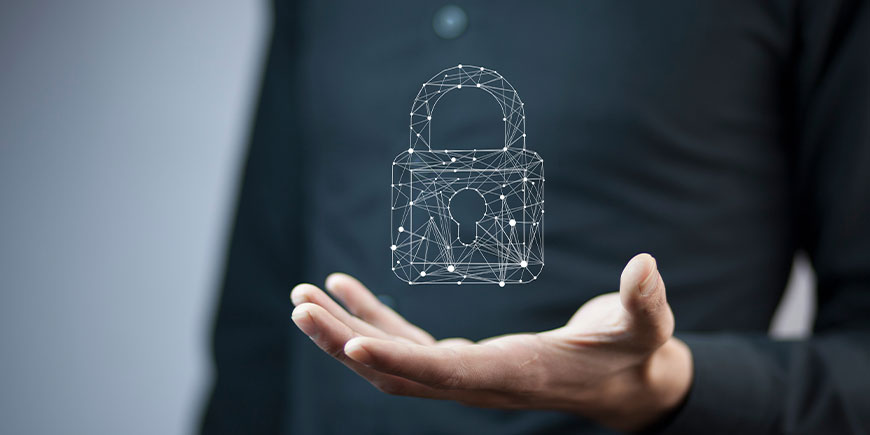By evaluating millions of data sets to identify dangers online, AI is revolutionising enterprise cybersecurity.
Artificial intelligence has revolutionised enterprise cybersecurity with services that can analyse millions of data points and identify a wide range of cyber threats, from malware attacks to suspicious behaviour that could lead to phishing attacks.
The technology is constantly under development and improvement, and the algorithms are learning from past and current events in order to be able to identify new types of attacks.
Impact of AI on cybersecurity
Artificial Intelligence (AI) has improved cybersecurity in addition to revolutionizing service delivery. 15% of businesses worldwide are thought to have incorporated AI technology advancements.
Adoption of new technologies, however, affects businesses in both positive and negative ways. Hackers are resourceful and tenacious, constantly seeking new ways to get past a company’s security measures. Because of this, we should never take technologically based security measures for granted. We should regularly update the solutions we have in place to protect our businesses. Conducting regular cybersecurity risk assessments is one of the safest methods to update your artificial intelligence system
If a business is the target of a hack, one should look into how the threat actors accessed the organization’s systems and create detections to stop similar activity in their networks.
An employee may infect other computers when they click on a malicious link and infect a networked workstation. Other network users are thus forced to decide whether or not to click on the malicious application. On the other hand, a virus that finds its way into an automated machine-to-machine network spreads far more quickly when humans are removed from the business process, which amplifies the effect.
Challenges of Machine-to-Machine Security
Imagine a hacker using artificial intelligence to infiltrate a corporate network and gather information. This person might infiltrate a network to gather information about a company’s employees and could then convince employees to reveal customer data or blackmail the company with attacks using AI to customize messages and visuals like showing pictures of known individuals.
While interactions between machines might reduce the need for intervention IT professionals need to rethink how they authorize access to their growing number of computer systems. Even if a machine receives an automated request to retrieve data from another system about a person the requesting computer must be able to verify the request.
This poses a challenge for businesses whose data systems are primarily accessed by humans instead of other machines. Passwords have weaknesses in today’s era of automation; they are prone to sharing and can be exploited to gain entry into multiple systems since they are often written down and exchanged.
Improving Cybersecurity with AI
There’s no denying that technology is developing steadily.
Technology is being used by businesses to enhance several areas of their operations. Even if there are benefits, there is still a risk from cyberattacks. Following the introduction of technology, organizations need to put cybersecurity measures in place to protect their systems and data.
In order to prevent cyberattacks that target IT infrastructures, networks, and applications, defenses must be put in place. The cybersecurity plan must incorporate safeguards against ransomware, phishing scams, data breaches, crypto jacking events, and Internet of Things (IoT) dangers. It is necessary to work with knowledgeable IT specialists or ethical hackers to guarantee the robustness of your AI security solution.
Relationship between cybersecurity and artificial intelligence
Artificial intelligence is a crucial aspect in computer decision-making. In cybersecurity it is based on machine learning, where IT specialists create algorithms based on historical data. Machine learning improves security by predicting attacks and anomalies, and by distinguishing between authentic and fraudulent access. The precision and speed with which threats are identified are unmatched by humans. As a consequence, artificial intelligence and machine learning technologies can avert cyber-attacks that might cost your company millions to remedy.
Artificial Intelligence Operations
AI systems utilize a network of trained computers to identify and prevent activities on networks. This technology is built to autonomously recognize threats reducing the chances of security breaches and unauthorized access to an organization’s data. By programming the system to categorize threats like ransomware or malware based on their characteristics management can make informed decisions about enhancing the AI’s capabilities.

Artificial Intelligence in Cybersecurity
Advancements in technology have significantly altered cybersecurity measures. AI is increasingly widely used in several industries, making it more than just a buzzword. AI has spurred growth in several fields, including customer assistance, healthcare, and robotics. Additionally, it contributes significantly to combating cybercrime.
The benefits are significant, helping professionals to be more aware, automate threat detection and respond more efficiently than traditional methods..
Here are the advantages and applications of AI in cybersecurity:
- Threat Detection: Artificial intelligence can recognize cyber threats and harmful activities before they infiltrate computer systems. Their constant updating is something that is impossible to achieve with traditional software. By leveraging natural language processing AI enhances its capabilities and safeguards data by analyzing articles, news updates, and cyber risk research. This proactive approach enables the detection of anomalies potential cyber-attacks and effective preventive measures.
- The era of the Bots:: Bots represent a portion of all internet traffic and can pose risks. Issues such as identity theft, fake account creation, and data breaches are concerns. AI and machine learning play a role in understanding web traffic patterns and distinguishing between bots (such as search engine crawlers) malicious bots and human users
- Assessing the Risk of a Potential Breach: AI technology assists in creating records for system users, connections, and applications with varying access privileges.
- Endpoint Protection: As the number of devices grows AI can play a role in enhancing their security. While antivirus and EDR software can help prevent cyber threats they generally tied to update plans and this can pose a risk. the advantage of AI-powered endpoint security lies in its learning process to establish a baseline behavior for each device. AI can alert professionals and restore systems to a state after being hit by ransomware. This approach offers protection against threats than solely relying on signature updates.
- Detecting Phishing with AI: hishing, a technique often employed by cybercriminals to distribute malware or gain access to user accounts, is a threat. Approximately one in every 99 emails is a phishing. Artificial intelligence (AI) plays a role in detecting and thwarting phishing attacks. AI can identify and monitor more than 10,000 phishing websites enabling quicker responses to incidents compared to human efforts.
Conclusions
In conclusion, Artificial intelligence has greatly improved our lives, made us more efficient in executing our day-to-day tasks, and helped mitigate cybersecurity threats. But it is a double-edged sword, as the results indicate that technological advancements have empowered hackers to improve their strategies and tools for targeting individuals and organizations.
Making technology choices can help businesses prevent crises. Artificial intelligence is increasingly essential for enhancing the efficiency of information security teams. Human capabilities alone are no longer sufficient to secure against attacks, making AI crucial for monitoring and detecting threats to enhance defense measures.
Despite some drawbacks, artificial intelligence is poised to advance cybersecurity efforts and bolster security for businesses.


